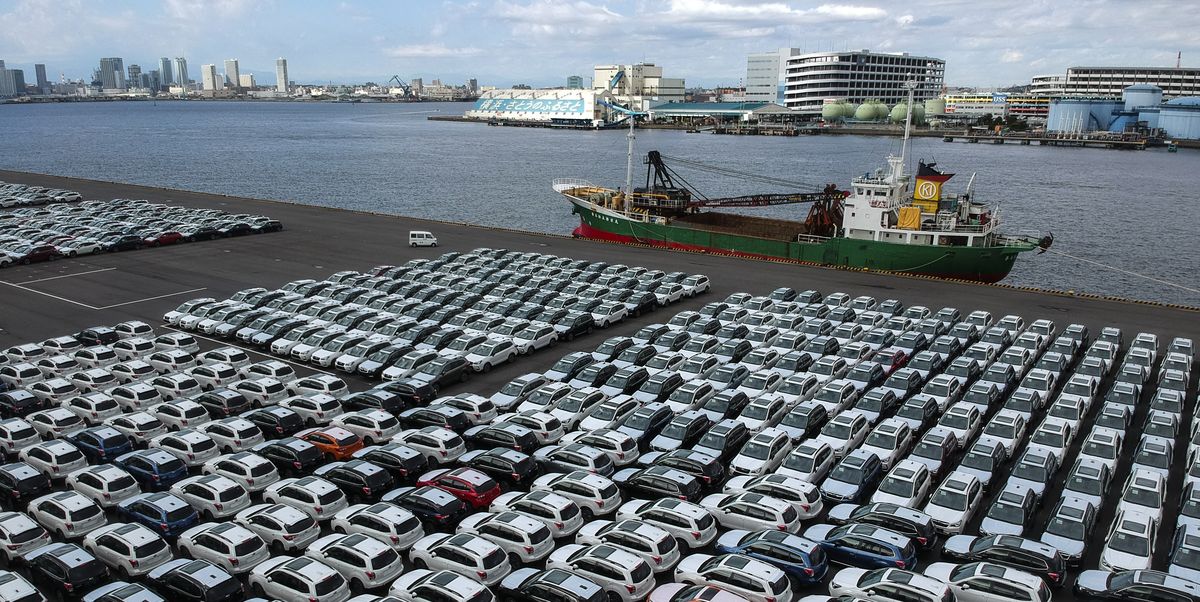Trump's Trade Deal Cuts Japanese Car Tariff to 15 Percent

Overview of the New Trade Deal Between the U.S. and Japan
President Donald Trump announced a significant trade deal with Japan on Tuesday, which will set the tariff on imported Japanese cars at 15 percent. This is notably lower than the 25 percent tariff that Trump had previously threatened to impose if a deal wasn’t reached by August 1. The agreement marks a major shift in trade relations between the two countries, with several key provisions impacting both economies.
One of the most notable aspects of the deal is that Japan will open its ports to the import of American cars and trucks. Additionally, Japan has committed to investing $550 billion in the United States. These terms are seen as a win for U.S. automakers, who have long been concerned about the high tariffs imposed on their products in the Japanese market.
Impact on the Automotive Industry
Trump’s import tariffs have caused considerable disruption in the automotive industry, leading to increased costs for both domestic and foreign automakers. Several car models have already faced challenges, with some imports being paused or delayed. However, the new trade deal aims to ease these pressures for Japanese automakers while also allowing more U.S. vehicles to enter the Japanese market.
The president made the announcement via social media, highlighting that the deal would allow Japan to import American cars, trucks, rice, and other agricultural products. In return, Japan will face a 15 percent tariff on its exports to the U.S., which is significantly lower than the 25 percent tariff that was set to take effect on August 1 if no agreement was reached.
According to reports from Japanese public broadcaster NHK, the trade deal also includes a reduction in the tariff on imported Japan-made cars. While Trump initially aimed for a 25 percent tariff on cars, this has now been lowered to 12.5 percent. When combined with the existing 2.5 percent tariff on Japanese auto imports, the total tariff on cars from Japan stands at 15 percent.
Reactions and Concerns
The news of the trade deal has been met with mixed reactions. Japanese automakers are celebrating the reduction in tariffs, as cars remain Japan's largest export to the United States. On Wednesday, Japanese automotive stocks saw a surge, with Toyota shares rising 14 percent, Nissan up 8 percent, and Honda up 11 percent.
However, not everyone is pleased. The American Automotive Policy Council, which represents major U.S. automakers such as General Motors, Ford, and Stellantis, has expressed concerns about the deal. The group pointed out that the tariffs on Japanese imports are now lower than the 25 percent tariff still applied to imports from Canada and Mexico. Matt Blunt, the head of the council, stated that "any deal that charges a lower tariff for Japanese imports with virtually no U.S. content than the tariff imposed on North American built vehicles with high U.S. content is a bad deal for U.S. industry and U.S. auto workers."
What’s Next?
Further details on the trade deal are still pending. Japanese Prime Minister Shigeru Ishiba mentioned that he had received an initial report but was waiting for more information from his negotiation team in Washington. As the full implications of the deal become clearer, it remains to be seen how it will affect the broader automotive landscape in both the U.S. and Japan.
For those looking to purchase a vehicle, the MSN Autos Marketplace offers a wide selection of cars to match individual needs and preferences.